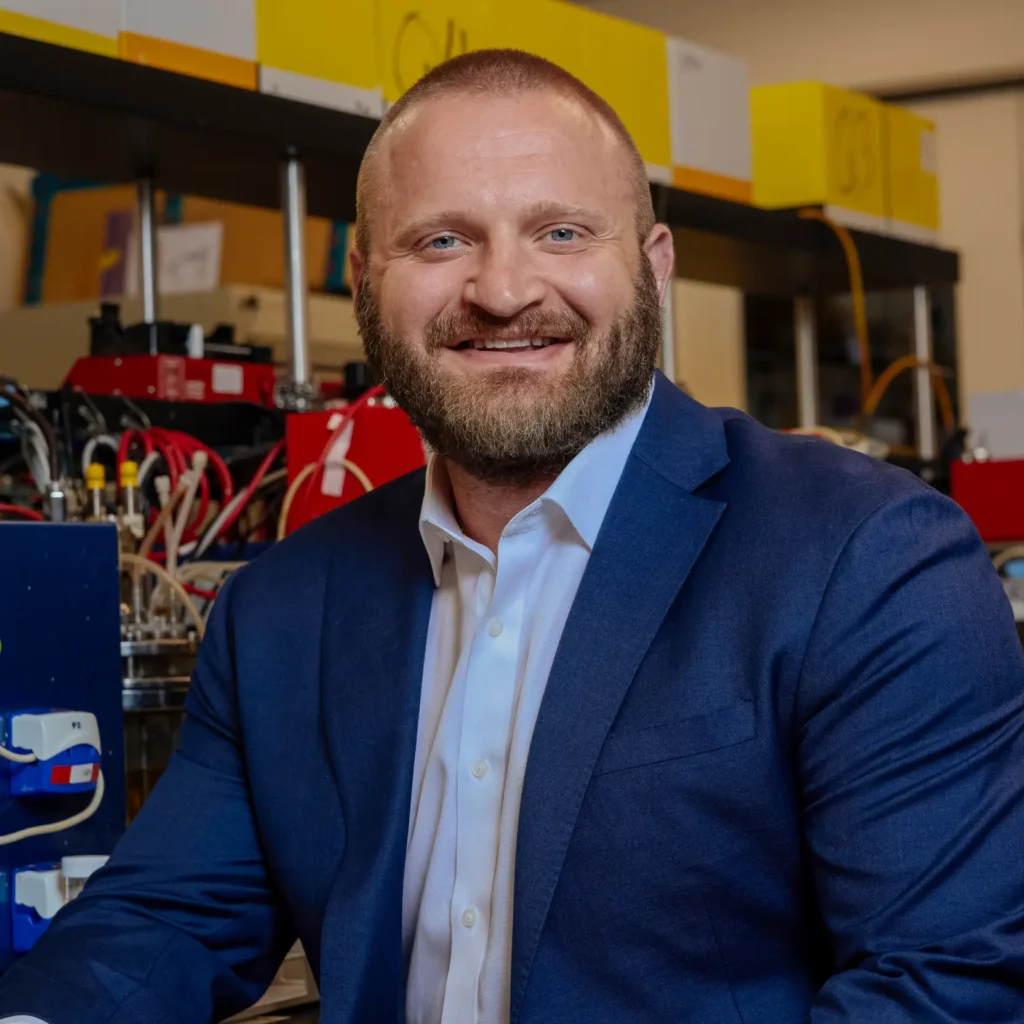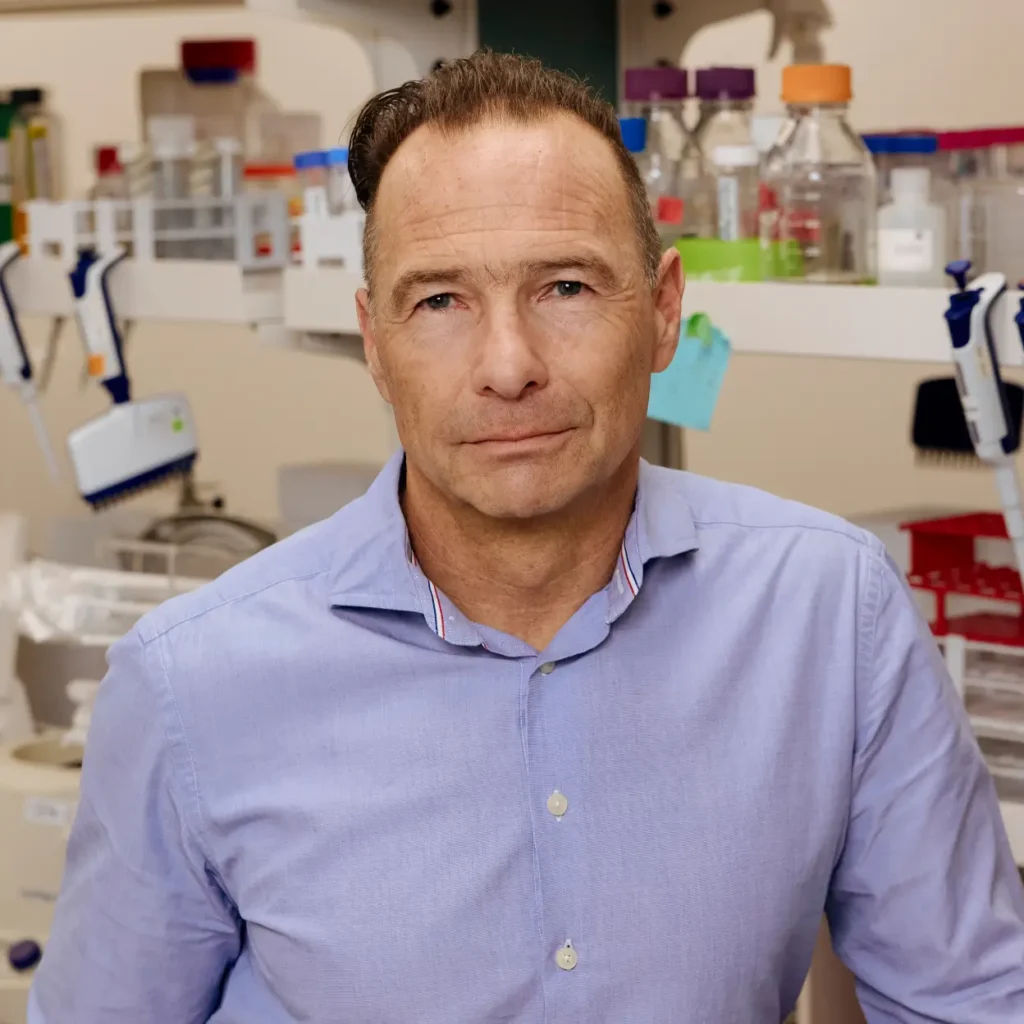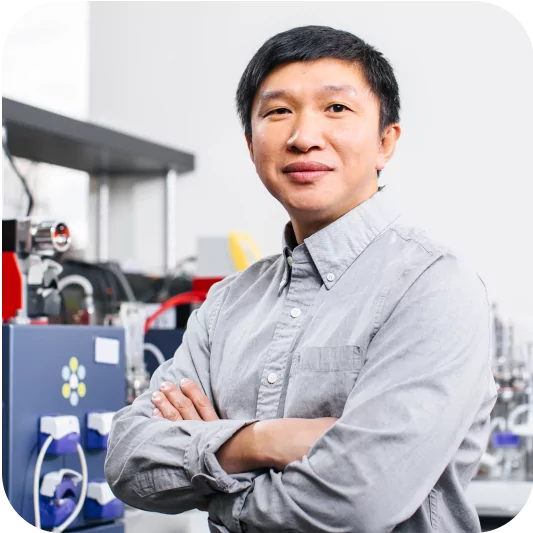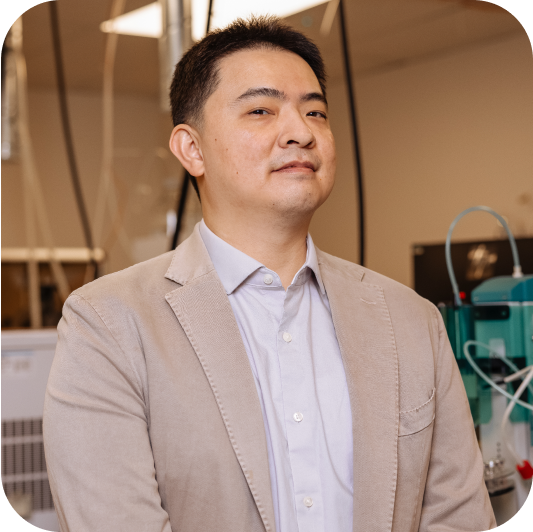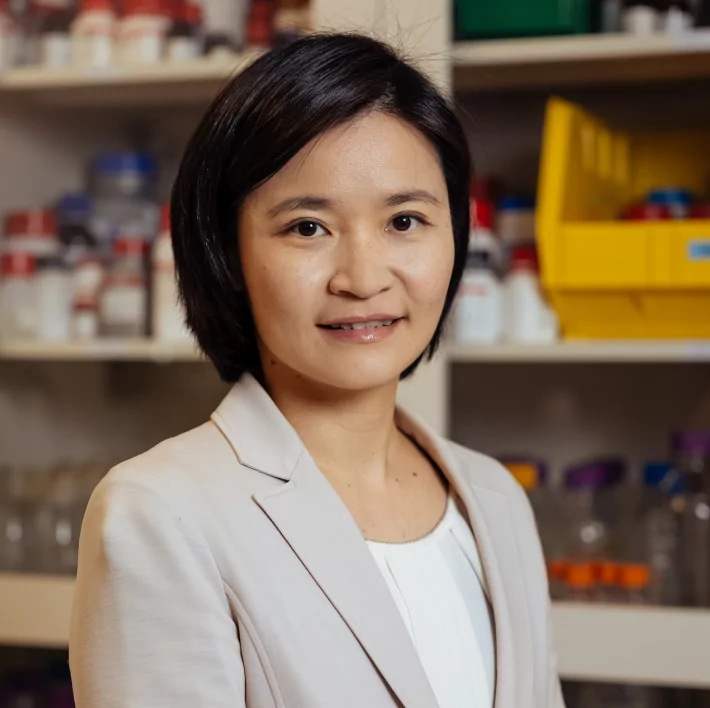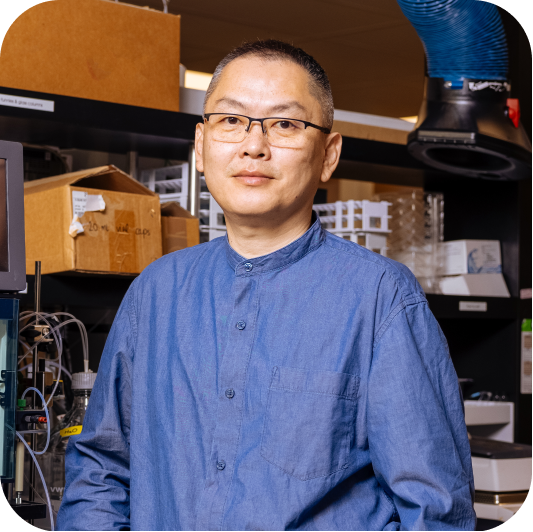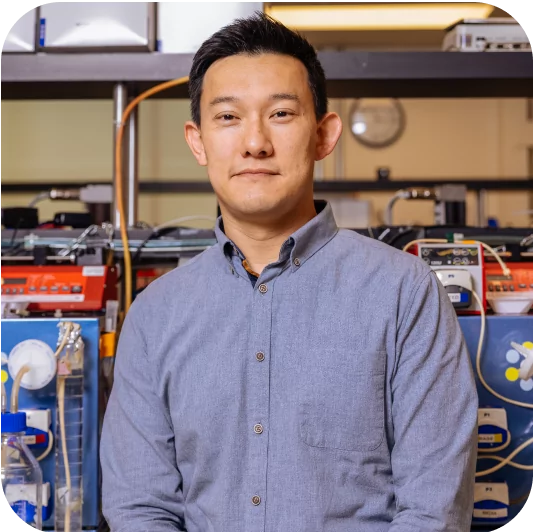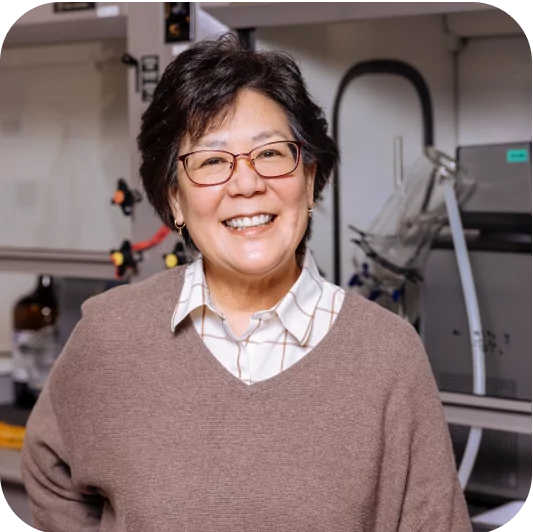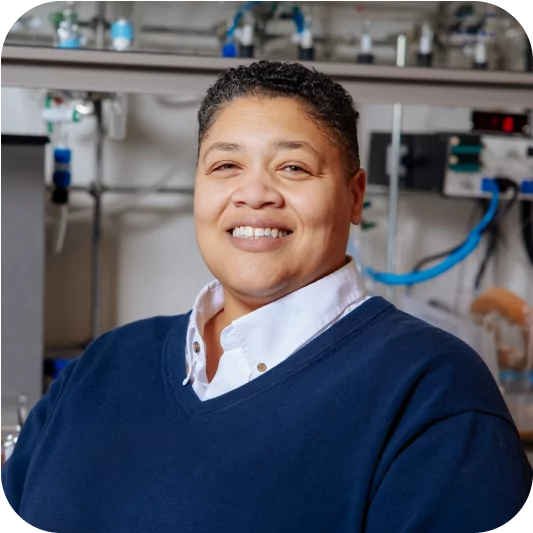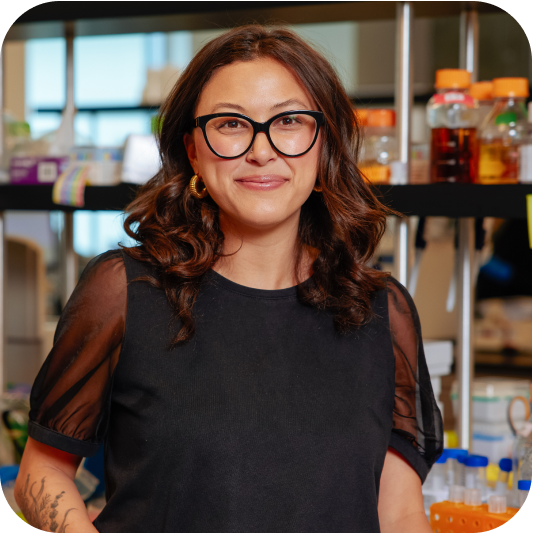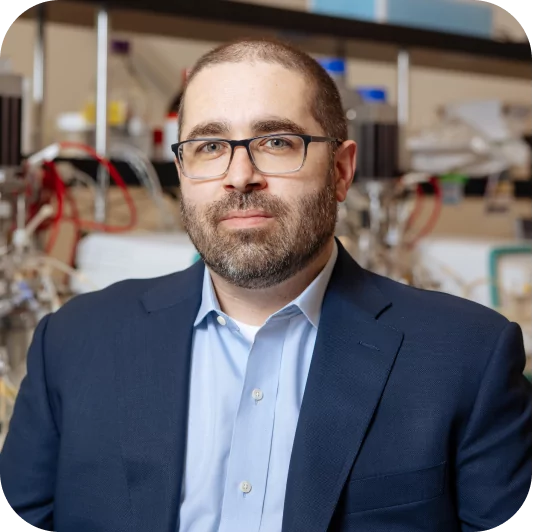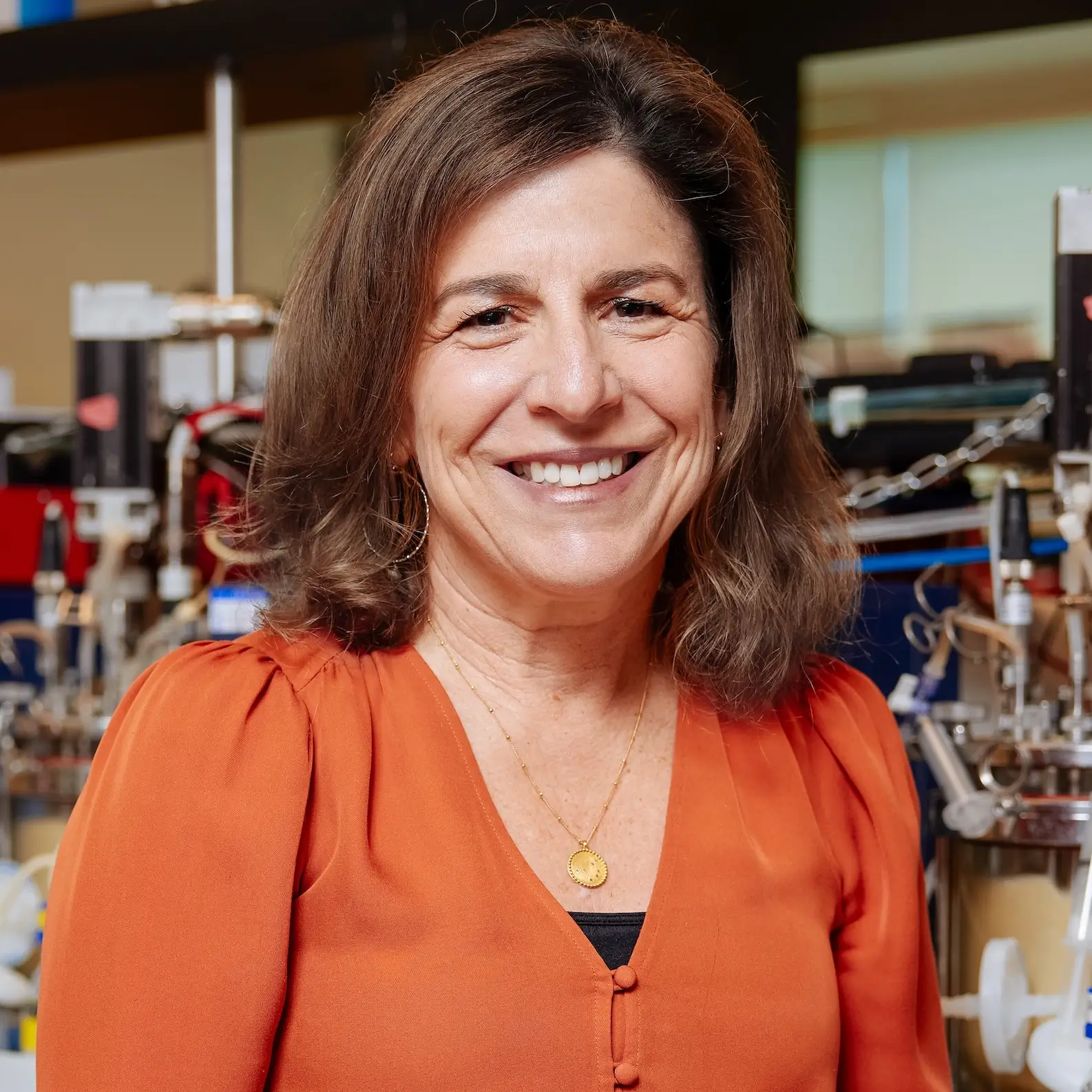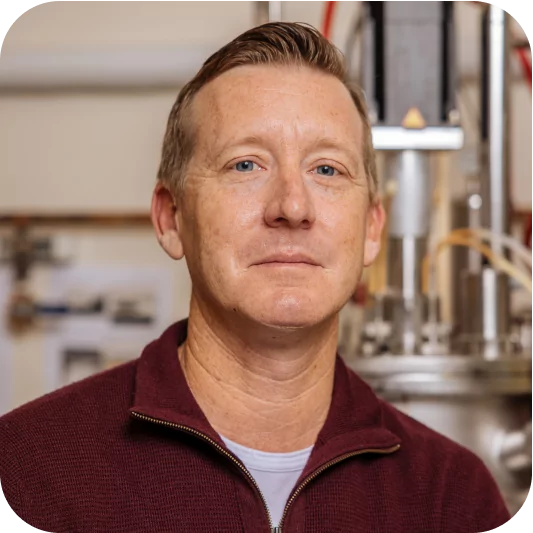With a pilot plant on the horizon and a pipeline filled with promise, Antheia is poised to soon establish a fermentation-based supply chain to produce the KSMs and APIs for essential medicines. Antheia’s new Vice President of Supply Chain, Guerin Kob, recently sat down to talk about his passion for sustainable supply chains, excitement for building from scratch, and his vision for Antheia’s future.
Antheia’s core mission is to innovate and transform essential medicine supply chains – so your expertise and experience is invaluable, since you’ll be responsible for the design and implementation of Antheia’s end-to-end global supply chain. We’d love to hear more about how you started in this industry.
I started my career as an analyst at an investment bank, actually, not in life sciences or supply chain. My time as an analyst was instrumental because it gave me a solid understanding and appreciation of all the levers within operations and supply chain that impact a company’s profits and losses. It was also an opportunity to see that finance wasn’t for me. Though that was a helpful experience, my focus shifted, and I’ve spent the past 15 years leading high-performing supply chain and procurement teams.
My transition to working in supply chain began in 2007 at School Health Corporation, a healthcare company where I worked for four years before shifting to W.R. Grace in 2011, a specialty chemicals and pharmaceutical intermediates company. Over the next decade I spent time in various roles of increasing responsibility within the supply chain, working on process development and end-to-end optimization. Finally, right before coming to Antheia, I served as the Senior Director of global supply chain for Sumitomo Chemical with Valent BioSciences. It was an exciting opportunity to not only manage the supply chain of one of the largest bioscience businesses of its type, but also manage it through what seems to have been the hardest part of the pandemic. Sumitomo’s supply chain is global in nature and focuses on bringing products to more than a hundred countries, with tens of thousands of shipments annually, and we accomplished that without significant disruption to our customers. That phenomenal experience brings me to where I am today.
What inspired you to say yes, and officially join the Antheia team?
Antheia has been a company on my radar for a while, because it has that rare combination of inspirational leadership and sound technology that is advancing solutions for industry problems – and I knew if I was going to make any career changes, it had to be for something special. When the position was posted, it was an easy decision for me to apply, knowing what’s possible for Antheia’s future and from a business perspective, how commercially viable their novel technology is.
From a supply chain perspective, it’s also exciting to have the opportunity to build one from the start, taking advantage of not having to untangle legacy systems that can sometimes be a roadblock – I have encountered some infinitely complex and intertwined supply chains that have been around for more than 100 years. I also wanted to be a part of an industry that is solving some of the world’s toughest challenges and caring for society, doing work that is essential to both supply chains and human health.
But really, the team behind Antheia is what made it easy to say yes. Christina and Kristy are so incredibly genuine, and that reverberates all the way through the organization, from our leadership all the way to our junior staff. The executive group sets the tone for openness and they genuinely are receptive to any great idea, which I think is awesome. One of the things that I’ve realized in my career is that company culture is incredibly important, especially when it’s been built in a purposeful and intentional way as it has at Antheia. It’s the people behind the company that made it easiest to say, yes. The novel technology is just the cherry on top.
What’s your vision for your work with Antheia?
One day I want to be able to look back and see that through my work with Antheia, I’ve been an integral part of building a supply chain that has successfully transformed the pharmaceutical supply chain. It’s easy to talk about our supply chain working, but actually implementing it is a significant feat – because it will require flexible processes that are able to scale with the rate of our innovation and world-class supply chain practitioners who can execute on our customers’ expectations. I would argue that in all industries, putting the customer first is the core tenet of the supply chain. But when you’re in an industry that has a critical role in essential medicines, putting the customer first ensures that the ultimate customer comes first – and that is the patient, provider, and insurer who we want to ensure experiences a continuity of supply of the medicine that they need the most. That is paramount to us being successful. Ultimately, I would like to see a platform that, like our science, scales at an equal rate so that the supply chain never becomes the bottleneck for innovation.
That’s amazing. So where to start?
Within the next year, we’ll be building our pilot plant, alongside the team, people, processes, and implementation of the necessary tools to support a commercial supply chain. We’ll be selecting the right supply partners and service providers to support the goal of transitioning out of the lab and into a commercial production environment. What happens after we establish our supply organization, is when it gets really interesting – and that’s when we build out a world class supply chain with agility and flexibility, using the best of both worlds: leveraging the tools and technologies of modern supply chain technology to augment traditional sound supply practices. Within the next five years, our manufacturing strategy will have solidified, and we will be operating as a scalable, commercial organization. It’s exciting to think about, with what’s already in our pipeline, and to imagine how to build something that can adapt to the rate at which our scientists are innovating.
We are in a global and domestic supply chain crisis, so your expertise is exceptionally important right now. How has this shifted your role and responsibility as a supply chain practitioner? Have you seen roles dynamically change as there’s a big call to action to have professionals in your field step up and solve these problems in this way?
I can’t recall a time in my career that supply chains were ever more relevant than now. I think it’s an incredibly opportune time for supply chain professionals to see themselves as both a value generator and a strategic differentiator of an organization, because the world has really opened its eyes to the importance and the fragility of global supply chains.
While I don’t think the roles and responsibilities of supply chain practitioners have really changed, I do think that what a supply chain practitioner spends the majority of their time on now has shifted because the current supply situation is unprecedented. For decades, supply chain practitioners have relied heavily on levels of predictability, because shipping types and supply lead times have been relatively reliable. But now every piece of the chain is unreliable, and supply chain practitioners are spending a much greater amount of time dealing with extreme levels of unpredictability. Previously, they spent more time executing, and now, they spend more time up front on the planning side to improve visibility, communication, and customer experience. Those are areas that didn’t necessarily need to be addressed previously because there was enough predictability to reliably deliver. We’re adapting and generating unique solutions to problems that we would never have anticipated in the past, all in an effort to reduce the variability within the current supply chains and add resiliency into the network.
Sustainability as a practice is also a priority for you – you’re an official Sustainable Procurement Ambassador. How does that inform the work that you do?
The Sustainable Procurement Pledge, which has Sustainable Procurement Ambassadors, is the brainchild of a group of chief procurement officers who realized that solving sustainability problems are obviously much larger than any one organization can solve on their own. It’s a group of like-minded individuals and organizations that meet regularly to talk about best practices within procurement and supply chains, and ways to improve and uplevel suppliers, which are often the weakest link within the supply chain. Ultimately, our goal is to drive and initiate sustainability improvements within supply chains. We focus on education and programs that can improve the capabilities of suppliers – and suppliers of suppliers – for the benefit of the entire collective, to make the entire world more sustainable. We have one Earth, and if we destroy it through our manufacturing processes, we have a huge problem. At the end of the day, you might work for a company, but you’re also living on the planet. We shouldn’t be destroying it at the same time.
That’s one thing I appreciate about fermentation within biosciences – it’s an inherently sustainable manufacturing process that can displace less sustainable processes with larger carbon emissions. Fermentation has a lower carbon footprint than traditional chemical synthesis, or other means of manufacturing, which supports us leaving the world a better place than how we found it, something that I value on a personal level and have seen permeate through Antheia’s culture.
What are you most excited about for your role?
Speaking of sustainability – it’s the fact that Antheia is uniquely positioned to solve a complex and delicate supply chain problem for essential medicines that are critically needed in our healthcare systems. Having a novel, sustainable means for manufacturing APIs and KSMs means that Antheia can provide essential solutions and continuity of supply, disrupting the current approach that is regularly disrupted by geopolitical events and climate crises. Antheia is targeting a supply chain that is exceptionally fragile in nature, that is impacted by all of the inherent risks I just mentioned.
I’m also thrilled that we are investing in our own pilot plant because it will be instrumental in scaling our manufacturing capabilities to industrial scale. It will give us autonomy to more quickly meet our customers’ requirements for samples as they start to evaluate our products and will greatly improve our efficiency.
However, this is probably the biggest opportunity and the biggest challenge that the company has. To try to do this in a time when supply chain issues are rampant takes a lot of things going right. Fortunately, we have a lot of fantastic science, support, and talent on our side working to make this future state possible – and I’m proud to be a part of it.
